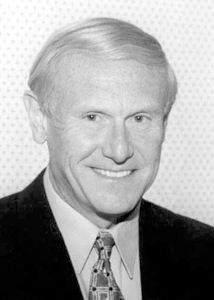ASK THE DENTIST…WITH DR. DAVID REICHWAGE
 As a practicing Fort Wayne family dentist, I see daily the damage to health and appearance caused by the decision to smoke. My team and I stay on the leading edge of advances in dental science, but the explosive rate of advancement in all health sciences cannot begin to compensate for the devastating impact of smoking to our body. I want to focus this month’s column on…
As a practicing Fort Wayne family dentist, I see daily the damage to health and appearance caused by the decision to smoke. My team and I stay on the leading edge of advances in dental science, but the explosive rate of advancement in all health sciences cannot begin to compensate for the devastating impact of smoking to our body. I want to focus this month’s column on…
NEW RESEARCH ON THE HEALTH IMPACT OF SMOKING
We’ve heard all the reasons why smoking isn’t good for us. Media, even the tobacco industry, are fountains of information. One source has yet to be heard from: the cell, our body’s base level of operation.
Let’s not worry about all the different disease conditions related to smoking, such as lungs with cancer or emphysema, or the ulcerated digestive system, or the bleeding gum tissue that continues to degenerate from lack of properly oxygenated blood, exacerbating heart and stroke risk.
Let’s just talk about the relationship of the system that affects every cell in our body, every second of every day: our blood vessels. Specifically, let’s talk about our arteries that carry life-giving blood as they relate to the cells of our immune system.
Similar to a soft plastic hose, arteries are flexible and pliable, easily shaped like a pretzel. However, as layers of hard, fatty deposits called plaque build up on the inside of the arteries, they become stiff like an old, weathered garden hose. Hardened arteries, a condition called atherosclerosis, result in high blood pressure and clogged blood vessels. Then heart attacks, strokes, memory loss and eventually the decline of body-organ functions set in. One culprit? Tobacco smoke.
Regardless of nicotine and tar content, the smoke itself takes the spotlight in the latest research from Indiana University.
Our body’s immune system keeps us healthy by removing waste products, bacteria and viruses that cause disease and sickness. It uses “Pac Man”-type cells called white blood cells to do housekeeping and cleanup. They literally eat up the “bad stuff.”
In addition, we need cholesterol for our body’s normal cell functioning. Cholesterol normally circulates in our system’s blood stream where it is continuously delivered to cells for repair, maintenance and growth.
This useful or “good” cholesterol is a very stable molecule; however, tobacco smoke causes it to change to an unstable form, which is free-floating in the blood stream. This oxidized molecule fools our immune system’s “Pac Man” scavenger cells into thinking it is something good to eat.
As a result, this good cholesterol, now in the form of an unstable globule of fat, now broken up and free-floating, collects on the walls of our blood vessels. In effect, tobacco smoke fools our own immune system into destroying our body’s useful, good cholesterol. The result is atherosclerosis, those “hard garden hose” arteries.
America, perhaps the entire world, is as much affected by a lifestyle crisis as by a healthcare crisis. The global proliferation of cigarettes is estimated to cause three million deaths a year! By the year 2020, the World Health Organization estimates cigarettes will cause ten million deaths annually! Yet, among the best performers on the Dow Jones Industrials are tobacco stocks.
We human beings can no longer argue and complain about healthcare delivery systems or rising healthcare costs on one hand, with a cigarette in the other.
Science and technology combine to present a double-edged sword that has cut deeply into human understanding of our bodies. Now it’s time for the human brain to act responsibly so that we are each accountable to preserve our own health.
Dr. Reichwage invites your questions about dental concerns to his email, ddsdpr@aol.com or to his practice, 426-1086.
- Celebrating 20 Years Of Community At The Stand - April 12, 2024
- First Positive Case Of Chronic Wasting Disease In Indiana - April 12, 2024
- Southwest Allen County Schools Embark On Major Tree Plantings - April 12, 2024


